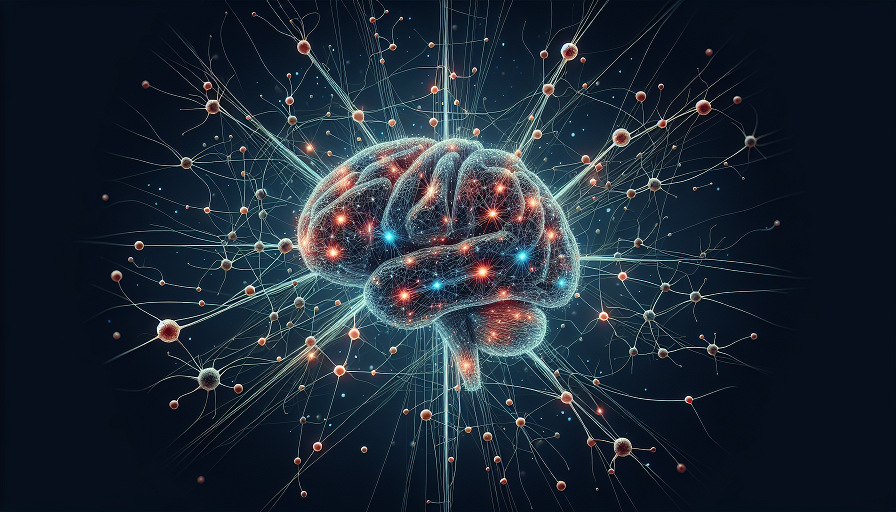
In our modern, fast-paced lives, achieving restful sleep and managing stress can often feel like chasing shadows. Amidst various remedies, one mineral stands out for its profound impact on both sleep quality and stress reduction: magnesium. This essential nutrient plays a pivotal role in numerous bodily functions, including the regulation of sleep and stress responses.
Contents
The Vital Role of Magnesium in the Body
Magnesium is involved in over 300 biochemical reactions within the human body. It contributes to:
- Energy Production: Assisting in the conversion of food into energy.
- Protein Synthesis: Supporting the creation of new proteins from amino acids.
- Muscle Function: Facilitating muscle contraction and relaxation.
- Nervous System Regulation: Modulating neurotransmitters that send signals throughout the brain and nervous system.
Despite its importance, many individuals do not consume adequate magnesium, leading to deficiencies that can manifest as muscle cramps, fatigue, and notably, sleep disturbances and heightened stress levels.
Magnesium’s Influence on Sleep Quality
Research indicates that higher levels of magnesium are associated with better sleep quality, including longer sleep duration and reduced daytime fatigue. Studies involving older adults have found that magnesium supplementation can help individuals fall asleep faster and prevent early morning awakenings.
Magnesium contributes to sleep regulation through several mechanisms:
Activation of the Parasympathetic Nervous System
This system is responsible for promoting relaxation and preparing the body for rest. Magnesium helps activate this system, facilitating a state conducive to sleep.
Regulation of Melatonin Production
Magnesium plays a role in regulating the production of melatonin, the hormone that controls the sleep-wake cycle. By ensuring adequate magnesium levels, the body can maintain proper melatonin synthesis, promoting a healthy sleep pattern.
Interaction with GABA Receptors
Gamma-aminobutyric acid (GABA) is a neurotransmitter that promotes sleep by reducing neuronal excitability. Magnesium binds to GABA receptors, enhancing its calming effects and facilitating the onset of sleep.
Magnesium’s Role in Stress Reduction
Stress and magnesium deficiency can create a vicious cycle, where low magnesium levels enhance the body’s susceptibility to stress, and stress further depletes magnesium reserves.
Magnesium aids in stress reduction through:
Regulation of the Hypothalamic-Pituitary-Adrenal (HPA) Axis
The HPA axis controls the body’s response to stress. Magnesium helps modulate this system, preventing excessive release of stress hormones like cortisol.
Modulation of Neurotransmitters
By influencing neurotransmitters that promote relaxation, such as serotonin, magnesium helps stabilize mood and reduce anxiety.
Muscle Relaxation
Stress often leads to muscle tension. Magnesium’s role in muscle relaxation can alleviate physical symptoms of stress, promoting a sense of calm.
Incorporating Magnesium into Your Routine
To harness the sleep-enhancing and stress-reducing benefits of magnesium, consider the following approaches:
Dietary Sources
Include magnesium-rich foods in your diet, such as:
- Leafy green vegetables (e.g., spinach, kale)
- Nuts and seeds (e.g., almonds, pumpkin seeds)
- Legumes (e.g., black beans, lentils)
- Whole grains (e.g., brown rice, oats)
- Fatty fish (e.g., salmon, mackerel)
Supplementation
If dietary intake is insufficient, magnesium supplements can be beneficial. It’s important to choose a high-quality supplement to ensure optimal absorption and efficacy.
Consultation with Healthcare Professionals
Before starting any supplementation, consult with a healthcare provider to determine the appropriate dosage and to ensure it doesn’t interact with other medications or conditions.
Magnesium is a powerful ally in the pursuit of better sleep and stress management. By supporting neurotransmitter function, promoting muscle relaxation, and regulating hormonal balance, adequate magnesium levels can help unlock a state of serenity, leading to improved overall health and well-being.

